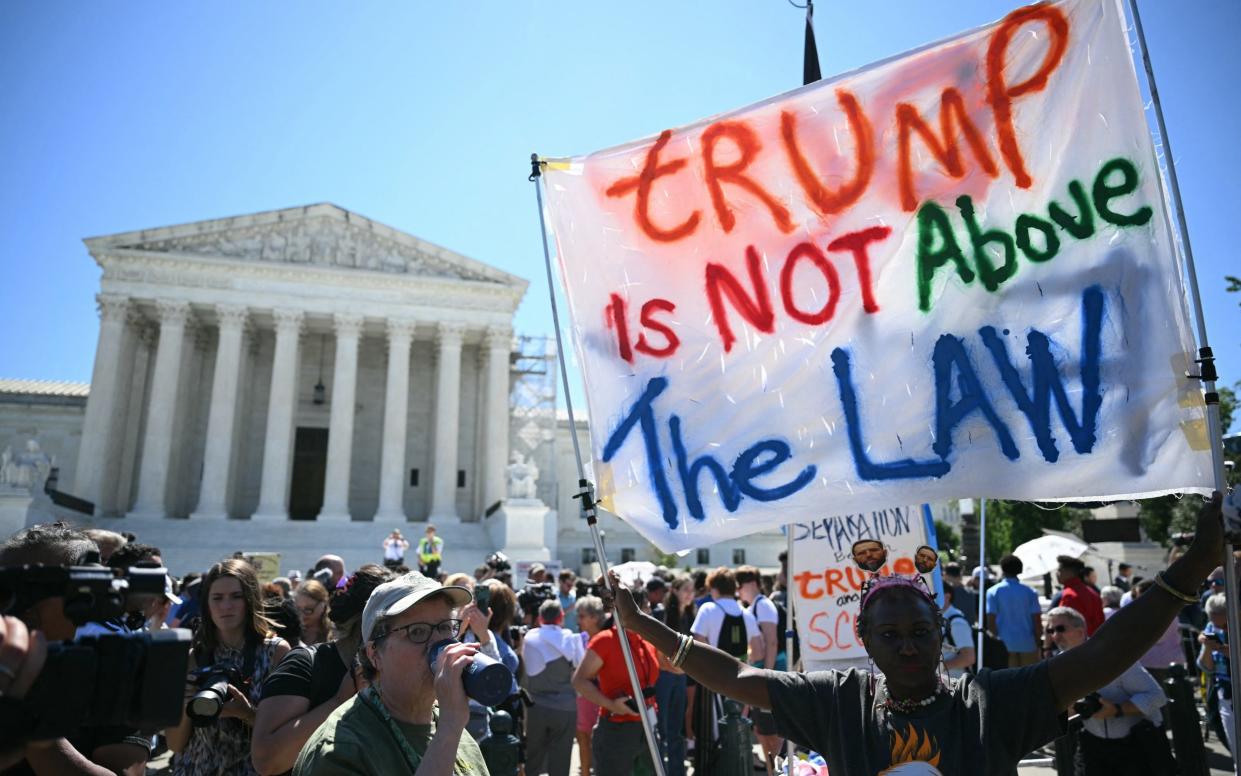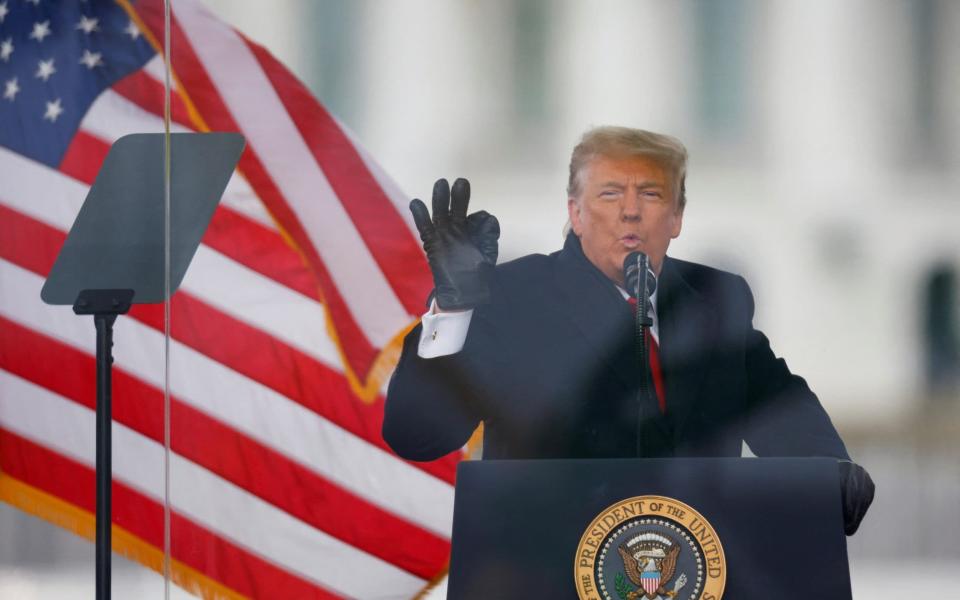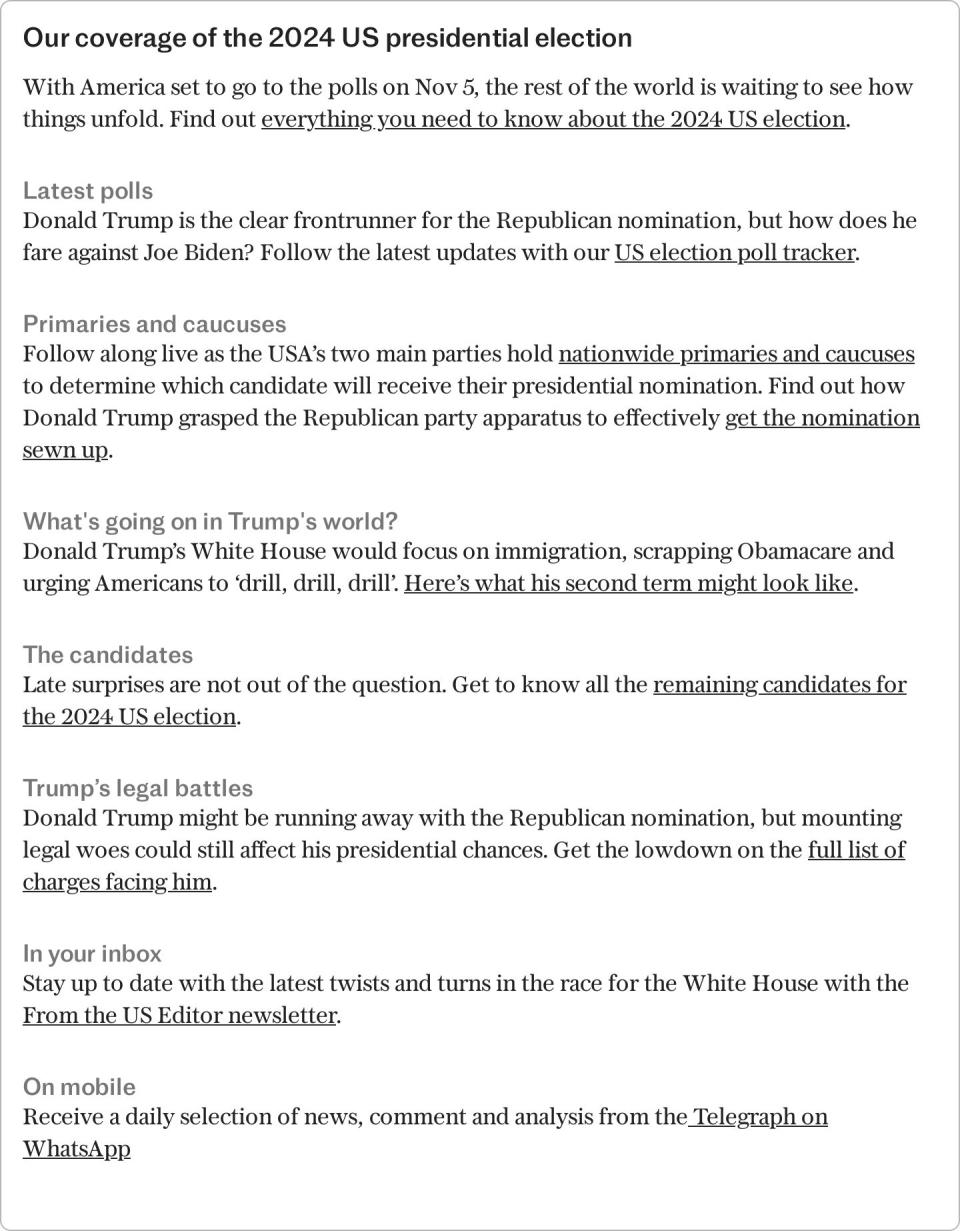US Supreme Court finds Trump has some immunity over Capitol riots

Donald Trump has won a major victory in his battle against election interference claims after the US Supreme Court ruled he had immunity over some actions taken while he was president.
A ruling issued by the court on Monday found that Trump had a “presumption of immunity” in most of the charges brought against him by the US government, which accuses him of trying to overturn the 2020 election result.
The ruling kicks off a fresh round of litigation over the case in a federal court in Washington DC, and will almost certainly delay a verdict until after the presidential election on Nov 5.
It is a blow for Joe Biden, whose campaign has focused heavily on Trump’s denial of the last election result and connection to rioters who stormed the US Capitol on Jan 6 2021.
Trump said the ruling was a “big win for our constitution and democracy” and “should end all of crooked Joe Biden’s witch hunts against me”.
In a divided ruling on partisan lines, the nine justices said Trump’s “official conduct” taken as US president had a “presumption of immunity” against prosecution.
Some of his actions, involving dealings with the Justice Department and an attempt to install an election denier as attorney general, were taken under the president’s “core constitutional powers” and therefore bring total immunity, the court said.
Any “unofficial” actions, including statements made in an entirely personal capacity, carry no immunity.
Trump was indicted last August with four crimes relating to election interference. He is accused of conspiring to overturn the election result and “defraud the American people”.
He denied the charges, and brought an appeal to the Supreme Court, claiming his actions in the aftermath of the vote enjoyed immunity because he was still president at the time.
The decision provoked fury from Democrats and some lawyers, including the three dissenting justices who considered Trump’s Supreme Court appeal.
Sonia Sotomayor, one of the justices, said the ruling would give a sitting president immunity for a decision to assassinate a political rival using “Seal Team Six” – the US Navy unit that killed Osama Bin Laden.
“Orders the Navy’s Seal Team Six to assassinate a political rival? Immune. Organises a military coup to hold onto power? Immune. Takes a bribe in exchange for a pardon? Immune. Immune, immune, immune,” she wrote.
“Let the president violate the law, let him exploit the trappings of his office for personal gain, let him use his official power for evil ends.
“Because if he knew that he may one day face liability for breaking the law, he might not be as bold and fearless as we would like him to be. That is the majority’s message today.”

Chuck Schumer, the Democrat majority leader in the Senate, said the decision was a sign of “political influence” in America’s highest court, which is sometimes abbreviated to “Scotus”.
“This disgraceful decision by the Maga Scotus – which is composed of three justices appointed by Trump himself – enables the former president to weaken our democracy by breaking the law,” he said.
“It undermines Scotus’s credibility and suggests political influence trumps all in our courts today.”
Eric Holder, a former US attorney general in Barack Obama’s administration, said the ruling was “absurd and dangerous” and a “monstrosity”.
Trump’s allies hailed the ruling as a “historic victory” for the “rule of law and American people”.
Elise Stefanik, a New York Republican representative, said: “The president of the United States must have immunity, like members of Congress and federal judges, which is necessary for any presidency to function properly.”
The Supreme Court’s decision kicks the case back to federal court in Washington DC, where Judge Tanya Chutkan is overseeing it.
The ruling means that lawyers on both sides will litigate over whether each of Trump’s actions were “official conduct” before the case can be brought to trial.
The new process essentially begins the case again, with both sides expected to haggle over evidence. The ruling on Monday said Trump’s official conduct cannot be used as evidence to inform “unofficial” actions – in a major blow to the government’s legal strategy.
The precise timeline for the case is not yet clear, but it is likely Trump will not face trial until after the election, if at all.
A spokesman for the Biden campaign said: “Today’s ruling doesn’t change the facts, so let’s be very clear about what happened on Jan 6: Donald Trump snapped after he lost the 2020 election and encouraged a mob to overthrow the results of a free and fair election.”


 Yahoo News
Yahoo News 
